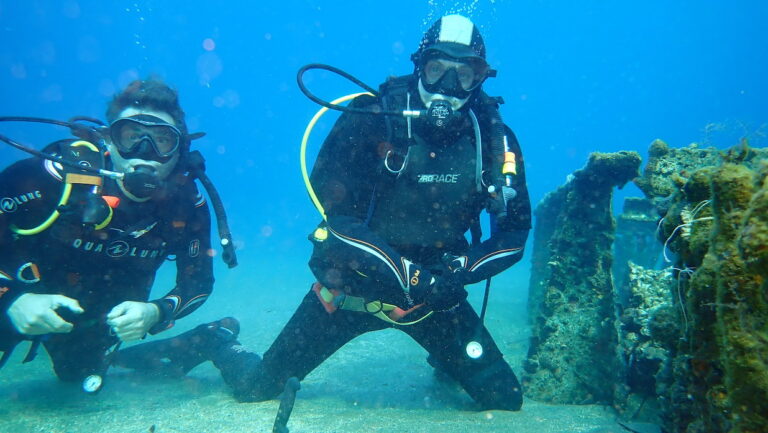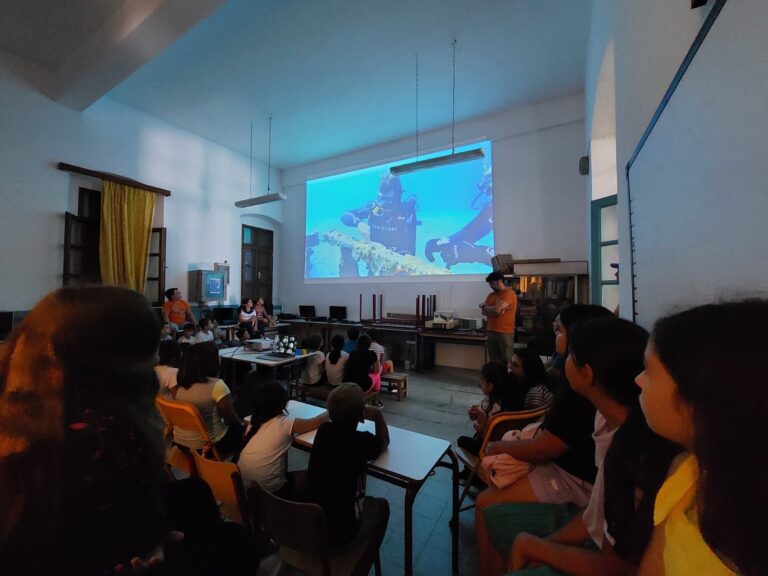The SPONGE PROJECT is an experiment to revive a marine habitat close to Nisyrian coast by reusing a large metallic marine litter that is not possible to withdraw from the sea. This litter becomes the ‘home’ to host living sponges. Practically, a sponge that was already in this large metallic marine litter was split into pieces within the water back in Novemebr 2021 and tied up with bio strings on metallic surfaces, in a depth of about 7 meters and with a space between them o 20-30 cm. Returning to the area in April 2022, some of the new sponges were still there and alive. The goal of this experiment was to observe if it is possible to revive a habitat that has been destroyed by various human activities since sponges hold the same role in the Mediterranean as the corals in the tropical seas, providing a shelter of various other species. The experiment has been successful, however the process and the created environment still need improvements.
NISYRIO team along with the scientific team, Marine Biologist Dr. Thodoris Kampouris and Environmentalist Anastasia Chatzinikolaou, will work together in order to practically install the sponges in the large metallic marine litter that will become the home for the sponges, develop a public program to share knowledge on marine habitat and the species that are under extinction, collaborate with the local fishermen and engage them to create a fishing free area, and finally the collaborating scientists to develop the scientific analysis of the project to be shared with the community as a practice around the world.
The public program includes Presentation & Introduction on Marine Habitat and Biodiversity to the primary, mid & high schools of the island. A visit to the fishing areas along with the local fishermen and a public talk to develop a preservation zone from fishing by installing all necessary equipment.
¨The SPONGE PROJECT Public Program is in connection with the Celebrate Islands 2022 operation and supported by the Rhône Mediterranean Corsica French Water Agency, the Conservatoire du littoral, the PIM Initiative, the FFEM, Zenon Impact and the City of Marseille”

